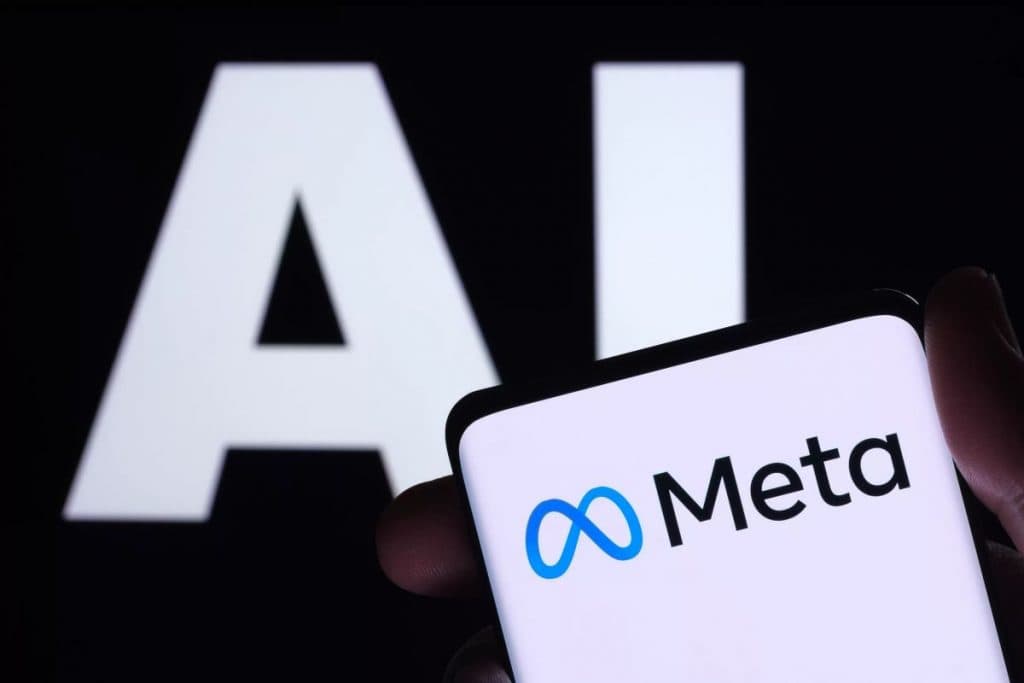Meta to Train a Free AI Chatbot to Overmatch OpenAI’s ChatGPT


In Brief
Meta, formerly Facebook, is training a GPT-4 level AI model in 2024, aiming to match OpenAI’s GPT-4.
The company is acquiring Nvidia H100 chips and expanding its data centres to create a game-changer chatbot.
Meta sets its sights on training a new chatbot model that aims to match the prowess of OpenAI’s GPT-4. The company is taking strategic steps, including procuring Nvidia H100 chips and expanding its data centres, to create a chatbot that promises to be a game-changer. Meta’s CEO, Mark Zuckerberg, reaffirms the commitment to keep the chatbot open and freely accessible.

The race for AI supremacy is heating up, with Meta establishing GPT-4 as the benchmark for its forthcoming AI model. According to reports, Meta has been actively acquiring AI training chips and bolstering its infrastructure, preparing to commence training the new large language model in early 2024. Mark Zuckerberg’s insistence on offering free access to companies for creating AI tools demonstrates Meta’s commitment to fostering innovation in the AI landscape.
Meta’s recent investments in Nvidia H100 AI-training chips signify a strategic shift to reduce reliance on external cloud platforms, such as Microsoft’s Azure, for training their AI models. This shift in strategy reflects Meta’s determination to build a more robust chatbot capable of emulating human expressions. The company assembled a dedicated team earlier this year to expedite the development of AI tools that can closely mimic human interactions.
Meta’s ambitions align with its ongoing efforts in the generative AI domain. Speculations about generative AI features have been circulating, with leaks suggesting the existence of an Instagram chatbot boasting 30 distinct personalities. This aligns with the rumored launch of unannounced AI “personas” set to debut this month.
Meta has encountered challenges this year, including high turnover among AI researchers and resource allocation complexities across various LLM projects. Despite these hurdles, the company remains determined to lead in the generative AI arena, where competition is fierce. While OpenAI has no immediate plans for a GPT-5, Apple is aggressively investing in its “Ajax” AI model. Google and Microsoft are also expanding their AI capabilities in productivity tools, and Google aims to leverage generative AI in Google Assistant. Amazon, too, is pursuing generative AI initiatives across its organization, potentially introducing a chatbot-powered Alexa.
Read more related topics:
Disclaimer
In line with the Trust Project guidelines, please note that the information provided on this page is not intended to be and should not be interpreted as legal, tax, investment, financial, or any other form of advice. It is important to only invest what you can afford to lose and to seek independent financial advice if you have any doubts. For further information, we suggest referring to the terms and conditions as well as the help and support pages provided by the issuer or advertiser. MetaversePost is committed to accurate, unbiased reporting, but market conditions are subject to change without notice.
About The Author
Damir is the team leader, product manager, and editor at Metaverse Post, covering topics such as AI/ML, AGI, LLMs, Metaverse, and Web3-related fields. His articles attract a massive audience of over a million users every month. He appears to be an expert with 10 years of experience in SEO and digital marketing. Damir has been mentioned in Mashable, Wired, Cointelegraph, The New Yorker, Inside.com, Entrepreneur, BeInCrypto, and other publications. He travels between the UAE, Turkey, Russia, and the CIS as a digital nomad. Damir earned a bachelor's degree in physics, which he believes has given him the critical thinking skills needed to be successful in the ever-changing landscape of the internet.
More articles

Damir is the team leader, product manager, and editor at Metaverse Post, covering topics such as AI/ML, AGI, LLMs, Metaverse, and Web3-related fields. His articles attract a massive audience of over a million users every month. He appears to be an expert with 10 years of experience in SEO and digital marketing. Damir has been mentioned in Mashable, Wired, Cointelegraph, The New Yorker, Inside.com, Entrepreneur, BeInCrypto, and other publications. He travels between the UAE, Turkey, Russia, and the CIS as a digital nomad. Damir earned a bachelor's degree in physics, which he believes has given him the critical thinking skills needed to be successful in the ever-changing landscape of the internet.






















































